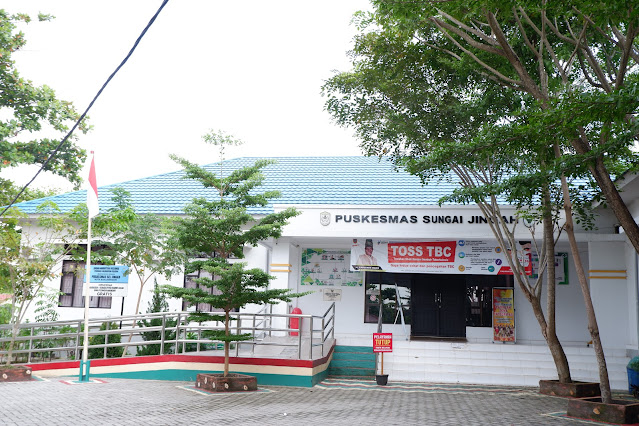Towards Inclusive Health
"A city can be said as a comfortable and inclusive city, if it has fulfilled the rights of all members of the community in it, especially in fulfilling the rights of persons with disabilities over their city. When people with disabilities feel comfortable with their city, indirectly that sense of comfort will also be fulfilled to other urban communities"
Talking about a comfortable and inclusive city, surely there must be good management, directed and sustainable. An inclusive city certainly includes a variety of things both from the system, access, infrastructure, policies, and so forth. One of the most important things to create an inclusive city is the creation of inclusive health which is a manifestation of the fulfillment of social, cultural and economic rights. In the Sustainable Development Goals (SDGs), health is one of the goals of SDGs number 3 which aims to ensure a healthy life and improve welfare for all ages, in part through targets to achieve universal health coverage (UN, 2015). Health here is not only about handling morbidity and mortality, but also on increasing access to health services for all through Universal Health Coverage (UHC). Health for all is very important because experiencing poor health can reduce the quality of life and participation (for example in education or work), and thus worsen disability, poverty and exclusion in addition to increasing suffering, morbidity and early death (Callaway, 2015).
Inclusive health is to ensure that everyone can access quality health services and the inclusion of all people including persons with disabilities in key health policies and laws, programming and services, training programs, research, and funding flows. Persons with disabilities are one of the largest and most medically underserved populations. Because of various systemic challenges, including inadequate provider training and inaccessible facilities, they lack access to quality health services and health promotion programs. As a result, people with disabilities experience dramatically preventable disease rates, chronic pain and suffering, and premature death.
Banjarmasin is headed for a comfortable and inclusive city. It is time to create inclusive health, of course, with the cooperation of various parties, ranging from the community as users of health services, the government, relevant stakeholders, and of course health service practitioners in various sectors. Banjarmasin City Health Office has four UPTs (Technical Implementation Units) which are divided into community health centers or better known as puskesmas, health laboratories, pharmacy, and UPT Sultan Suriansyah Hospital. In total, there are 1500 civil servants working for UPT. While there are 26 Puskesmas to serve 52 villages in Banjarmasin. This means that one Puskesmas can manage 3-4 Kelurahan.
Banjarmasin City Health Office has sought to realize inclusive health, one of which is through the disability program which is directly supervised by the nutrition and family health program. In addition, increased access and facilities have also begun to be realized in various health service units, such as providing ram, a special entry point for persons with disabilities, texts for patients with hearing loss, and of course with sign language training for healthcare workers. In addition, every week staff from the puskesmas usually come to the villages to provide health services in the form of posyandu (health services for toddlers) and health services for the elderly and people with disabilities.
Unfortunately, to realize inclusive health there are still many things that need to be updated and developed. Inclusive health means optimal health services by health care providers, a comprehensive medical team, distance between health care centers close to the community, health insurance services (BPJS) nationally must have clear information especially about procedures, access to health services for the community ( non BPJS), quality of drugs and good and effective services (both in terms of risk information, drugs, referrals, etc.), the absence of differences between patients, a precise diagnosis from doctors to reduce malpractice, as well as a good understanding of sign language for health care workers for patients with hearing loss.
Some other things that must be considered in providing health services for persons with disabilities include inserting disability etiquette, including intellectual disabilities, in the training of internal staff, talking directly to the individual, not his colleagues, and letting the person finish before responding, use accessible language as well as sign language, written materials in various health facilities must be in simple and easy to understand language, provide direct assistance to persons with disabilities, provision of other materials such as braille, training for health care workers on how to interact and communicate with persons with disabilities, how barriers and challenges that must be faced, and methods for overcoming these obstacles and challenges, as well as incorporating the rights of persons with disabilities in policies and systems related to health services.
As an important note for all of us, people with disabilities are very large minority groups who have greater health needs, both in general and specifically, and who have lower health for various reasons. Thus, a proactive approach is needed to remove barriers and adjust services to suit their needs, including greater participatory research to provide information about general and specific needs.






0 komentar